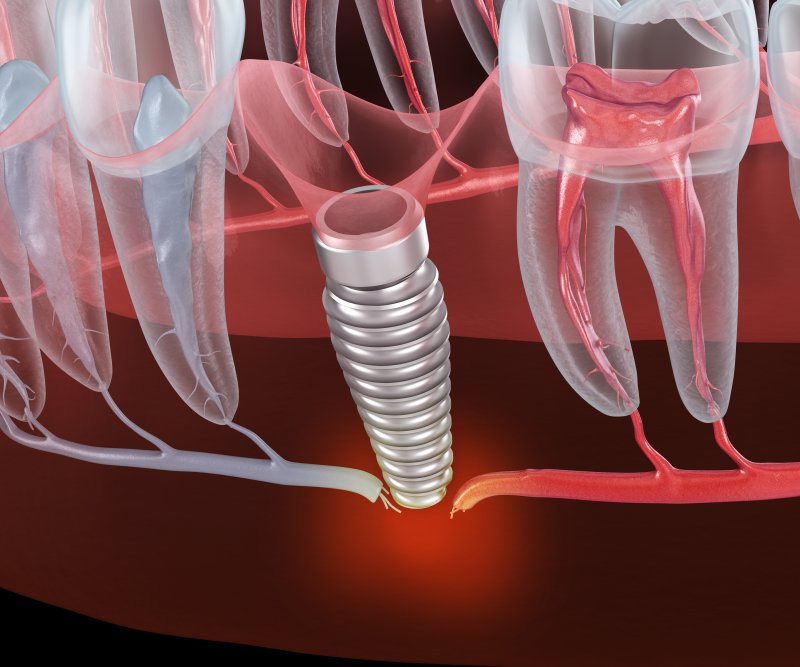
After receiving dental implants, the last thing you want to experience is a complication. Fortunately, these are rare, as placement has a high success rate. The potential for problems to form is possible, though, especially if poor oral hygiene is to blame. Whether it has been a few weeks or years since your surgery, here are three signs of a failed dental implant and what you can do to save your smile.
What Can Cause an Implant to Fail?
Although it is unlikely to happen, a dental implant can fail for several reasons:
- Peri-implantitis, which is similar to gum disease
- Facial trauma that causes the implant to become loose
- Failed osseointegration, which means the implant and bone did not successfully fuse
- Improper placement by an implant dentist
No matter the reason for the failed dental implant, it’s important that you seek professional help right away. Depending on the cause, your dentist will determine how best to treat the problem so that your smile doesn’t experience a complete overhaul once again.
What Are Signs That an Implant Has Failed?
While your dentist may be the only person who can officially tell you if your dental implant has failed, there are some signs you can be mindful of should you believe you might be at risk. Make sure to look out for:
- A loose dental implant
- Increased pain or swelling around the implant
- An infection that forms around the post, as this can be gum disease
- Difficulty chewing
- Gum recession
What Can Be Done to Prevent Dental Implant Failure?
Undergoing dental implant surgery, a second time might not sound like an ideal situation, which is why it’s imperative that you abide by your dentist’s instructions to maintain optimal oral hygiene. While some situations of implant failure are out of your control, there are steps you can take to lower your risk, including:
- Giving up unhealthy habits like smoking, as this will weaken your immune system and make you more susceptible to infection, which can cause gum disease and failed osseointegration.
- Adding more calcium to your diet so that it will help to strengthen your bones.
- Practicing good oral hygiene at home by brushing, flossing, and rinsing.
- Seeing your dentist every six months for regular checkups and cleanings.
- Wearing a protective mouthguard if you play sports or grind your teeth.
Dental implants have the ability to last a lifetime but only if you commit to taking care of them. Incorporating these tips into your daily routine will ensure that you avoid implant failure and instead, enjoy your new and improved smile day after day.
About Grand Dental – Channahon
Grand Dental – Channahon has a team of skilled dental specialists who care about patients. Offering dental implants to those who are missing one or more teeth allows us to help patients embrace a better quality of life. But if dental implant failure occurs, there is still hope. Visit our website or call (815) 240-9009 to learn how we can help you take better care of your smile.
